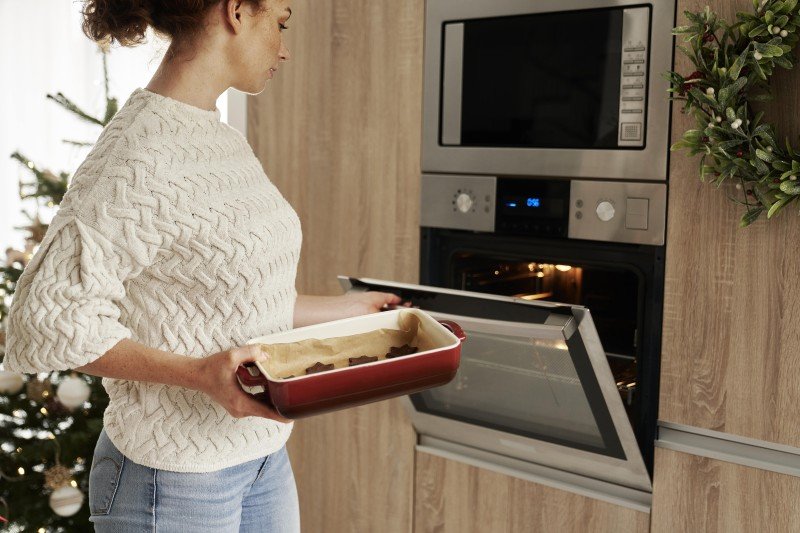Who's The Top Expert In The World On Cookers And Hobs?
Understanding Cookers and Hobs: A Comprehensive Guide
Cooking is an important aspect of daily life, and the development of kitchen devices plays a considerable function in how efficiently and successfully individuals prepare their meals. Amongst these appliances, cookers and hobs are 2 of the most vital instruments found in modern kitchen areas. This post looks into the differences between cookers and hobs, analyzes their various types, and uses insights on their features, upkeep, and selection procedure.
What are Cookers and Hobs?
Cookers
Cookers are comprehensive kitchen home appliances created for cooking jobs, normally combining an oven and a hob. They can be found in various configurations and types, catering to varied cooking needs and choices.
Hobs
Hobs, on the other hand, are more focused devices mostly utilized for boiling, frying, and other stovetop cooking approaches. Hobs can be standalone systems or an integrated part of larger cookers.
Feature
Cookers
Hobs
Function
Integrates oven and hob
Stovetop cooking only
Design
All-in-one unit
Different system or integrated
Types
Electric, gas, dual fuel
Gas, electric, induction
Setup
Permits for more versatility
Built into the counter top
Cost Range
Normally higher
Varies widely
Types of Cookers
1. Electric Cookers
Electric cookers use electricity as their main power source. They typically feature an integrated oven and multiple cooking zones on the hob.
Advantages:
- Even heat circulation
- Readily available in various styles (e.g., freestanding, built-in)
2. Gas Cookers
Gas cookers operate on natural gas or liquefied petroleum gas (LPG). They offer immediate heat control, making them a preferred amongst expert chefs.
Benefits:
- Instant heat adjustments
- More economical operational expenses
3. Dual Fuel Cookers
Double fuel cookers integrate the heat of gas with the performance of electric ovens. This setup enables the best of both worlds, supplying control and constant outcomes.
Benefits:
- Flexible cooking alternatives
- Accurate control over stovetop cooking and baking
4. Variety Cookers
Range cookers are larger and more effective than basic cookers, featuring multiple ovens and hobs for extensive cooking jobs.
Advantages:
- Ideal for big households or cooking for occasions
- Provides different cooking alternatives in one device
Kinds of Hobs
1. Gas Hobs
Gas hobs are preferred for their quick heating and strong flame, making them outstanding for scorching and stir-frying.
Advantages:
- Instant heat and control
- Suitable with any type of cookware
2. Electric Hobs
Electric hobs warm up using electric coils or glass-ceramic surface areas, offering a contemporary look and effective cooking.
Advantages:
- Easier to clean
- Uniform surface appropriate for different pots and pans
3. Induction Hobs
Induction hobs use magnetic fields to heat pots and pans straight, using fast and energy-efficient cooking.
Benefits:
- Safe (cool surface area after getting rid of pots and pans)
- Energy-efficient and precise
4. Solid Plate Hobs
These traditional hobs use strong electric plates that warm up slowly.
Advantages:
- Rugged and durable
- Normally more cost effective than other types
Key Features to Consider
When picking a cooker or hob, several functions should be taken into account:
- Size and Space: Consider the size of your kitchen and the quantity of office required.
- Cooking Style: Choose based upon choice— gas for control, induction for effectiveness, and so on.
- Efficiency Ratings: Look for energy-efficient models to lower energy expenses.
- Alleviate of Cleaning: Smooth surfaces assist in simple upkeep.
- Security Features: Automatic shutoff, flame failure gadgets, and child locks enhance safety.
Upkeep Tips
Preserving cookers and hobs extends their life-span and guarantees safe operations.
- Routine Cleaning: Wipe down surface areas after usage to prevent accumulation.
- Inspect Seals: Check oven door seals frequently for wear and tear to keep performance.
- Service Regularly: Schedule professional maintenance at least once a year.
- Suitable Cookware: Use cookware proper for your hob type to prevent damage.
Often Asked Questions (FAQs)
What is the difference in between a cooker and a hob?
A cooker combines an oven and hob in one unit, while a hob is usually a standalone appliance for stovetop cooking.
Do I need an expert to set up a gas cooker or hob?
Yes, professional setup is recommended for gas devices to ensure safety and compliance with local regulations.
Can I use any type of pots and pans on induction hobs?
Induction hobs require magnetic cookware. Stainless-steel or cast iron pots work best. Ovens With Hobs -magnetic products will not warm up.
Are electric cookers more energy-efficient than gas cookers?
While both have benefits, electric cookers tend to be more energy-efficient overall, particularly with contemporary, high-efficiency models.
How typically should I clean my cooker or hob?
It is best to clean them after each usage and carry out a thorough cleaning weekly to prevent buildup and residue.
Comprehending the distinctions, features, types, and maintenance pointers for cookers and hobs is essential for any home cook. By choosing the right appliance fit to their cooking requirements, users can enhance their cooking experience, making meal preparation an effective and enjoyable chore. Whether choosing the instant control of gas or the smooth performance of induction, selecting the appropriate cooker or hob can lead to a notably boosted kitchen experience.
